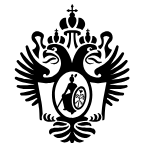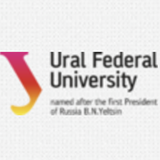The Institute of International Business Education Russia is currently no longer in operation. The following is some information based on the general situation when it existed:
Introduction
The institute was once an institution focusing on international business education, dedicated to cultivating business professionals who meet the needs of global economic integration, and providing students with international business-related knowledge and skills training to help them develop in the international business arena.
Overview
The institute may offer a variety of educational programs at various levels, covering undergraduate and master's levels, with majors in international business, international trade, international finance, marketing and other business-related fields, aiming to cultivate students with cross-cultural communication skills and international business operation capabilities to meet the learning needs and career development goals of different students.
History and establishment time
Since the official website does not provide exact information, its establishment time is difficult to determine. It is speculated that it may have been established during the period when the Russian economy was gradually opening up and the demand for international business talents increased, perhaps in the late 20th century or early 21st century, and the specific year is unknown. Its development process may be related to the development of the Russian economy and the internationalization of education, but due to the cessation of operations, relevant detailed historical information is difficult to obtain.
School Strength
Teaching Staff: It may have a group of teachers with professional knowledge and practical experience in international business. They may come from different fields. Some teachers may have overseas study or work experience and can provide students with diversified teaching perspectives and practical guidance. However, as the college ceases operations, the specific situation of the faculty cannot be further verified.
Teaching Resources: The college may be equipped with certain teaching facilities, such as classrooms, libraries, etc., to support teaching activities. The library may have professional books, journals and other materials related to international business for students to study and research. But after the cessation of operations, the whereabouts of these teaching resources are unknown.
International Cooperation: Given its positioning in international business education, it may have established cooperative relationships with some international companies, institutions or other colleges to provide students with internships, exchanges and opportunities to expand their international horizons. However, the specific scope and depth of cooperation are difficult to determine due to the closure of the college.
Nature of the College
From its name and the type of education provided, it may be a private college that focuses on talent training in a specific field (international business education) and has a relatively flexible curriculum and management model to adapt to the changes in market demand for international business talents. However, this is only a guess based on the general situation and lacks definite evidence.
Educational philosophy
International vision training: emphasizes cultivating students' understanding of the global business environment, making students familiar with the business culture, market rules and trade policies of different countries and regions, so as to cultivate students' international vision and cross-cultural communication ability.
Practice orientation: focus on the combination of theory and practice, through case analysis, simulated business projects, internships and other teaching methods, help students apply the knowledge they have learned to actual business situations, improve students' ability to solve practical problems and employment competitiveness.
Innovation and entrepreneurship training: may encourage students to innovate thinking and entrepreneurial awareness, cultivate students' spirit of discovering opportunities, innovating business models and entrepreneurship in the field of international business, so as to adapt to the ever-changing business environment.
Key laboratories and disciplines
Key disciplines: International business majors may be its core disciplines, focusing on teaching and research in multinational corporate management, international marketing, international trade practices, etc.; international finance disciplines may focus on the international monetary system, foreign exchange transactions, cross-border investment and other fields; international trade disciplines focus on the study of international trade theories, policies, processes and related laws.
Key laboratories (if any): There may be an international business simulation laboratory that simulates international business negotiations, import and export business processes, multinational company operations and other scenarios, so that students can master international business skills in practice; there may be a financial analysis laboratory equipped with relevant software and data resources for students to conduct practical operations such as financial market analysis and investment decision simulation, but the actual situation of these laboratories cannot be confirmed because the college has stopped operating.
Departments
There may be international business departments, international economics and trade departments, international finance departments, marketing departments, etc. Each department is responsible for teaching, scientific research and student management in the corresponding professional fields to ensure the depth and professionalism of professional teaching. However, the specific department settings and structures are difficult to know exactly because the college is closed.
Rankings
Since the college has stopped operating and may not have participated in various ranking assessments during its operation, it is difficult to determine its specific ranking at home and abroad. However, during its active period, it may have a certain reputation and influence in the field of professional business education in Russia.
Fees
During the operation period, tuition standards may vary depending on the course level, major and academic system. Tuition fees for undergraduate courses may fluctuate within a certain range, while tuition fees for postgraduate courses may be relatively high. Other expenses such as textbook fees, accommodation fees, and living expenses may also be involved. However, the exact details of the fees cannot be obtained due to the closure of the college.
Campus environment
The campus may be located in a city in Russia, but the specific location is unknown. The campus may have basic teaching and living facilities, such as teaching buildings, libraries, student dormitories (if any), canteens, etc., to provide students with a place to study and live. The campus environment may focus on creating an international atmosphere to match the characteristics of its international business education, but the current status of campus facilities after the cessation of operations is unknown.
In short, the Russian International Business Education Institute has ceased operations, and the above information is a speculative introduction based on its possible existence, and the specific details are difficult to restore completely and accurately.
-

Peter the Great St.Petersburg Polytechnic University
-

Moscow State University M. V. Lomonosov
-

Bauman Moscow State Technical University
-

St. Petersburg State University
-

Tomsk State University
-

Peoples' Friendship University of Russia
-

Don State Technical University
-

Ural Federal University
-

Moscow Institute of Physics and Technology
-

Kazan Federal University
-

Mesoamerican University
-

Istmo University
-

Mariano Galvez University of Guatemala
-

Regional University of Guatemala
-

Galileo University
-

Francisco Marroquín University
-

Rafael Landívar University
-

University of the Valley of Guatemala
-

University of San Carlos of Guatemala
-

Technological Institute of Tlaxcala Plateau
-

Golfo University
-

Technological University of South Sonora
-

Technological University of Huejotzingo
-

Tizimín Institute of Technology
-

Chilpancingo Institute of Technology

